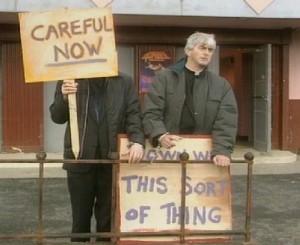 The new calendar year is traditionally a time for reflection and for resolutions, but in a fit of hubris I’ve put together a list of resolutions I’d like to see for the sector, research funders, and university culture in general. In short, for everyone but me. But to show willing, I’ll join in too.
The new calendar year is traditionally a time for reflection and for resolutions, but in a fit of hubris I’ve put together a list of resolutions I’d like to see for the sector, research funders, and university culture in general. In short, for everyone but me. But to show willing, I’ll join in too.
No more of the following, please….
1. “Impactful”
Just…. no. I don’t think of myself a linguistic purist or a grammar-fascist, though I am a pedant for professional purposes. I recognise that language changes and evolves over time, and I welcome changes that bring new colour and new descriptive power to our language. While I accept that the ‘impact agenda’ is here to stay for the foreseeable future, the ‘impactful’ agenda need not be. The technical case against this monstrosity of a word is outlined at Grammarist, but surely the aesthetic case is conclusive in itself. I warn anyone using this word in my presence that I reserve the right to tell them precisely how annoyful they’re being.
2. The ‘Einstein fallacy’
This is a mistaken and misguided delusion that a small but significant proportion of academics appear to be suffering from. It runs a bit like this:
1) Einstein was a genius
2) Einstein was famously absent-minded and shambolic in his personal organisation
3) Conclusion: If I am or pretend to be absent-minded and shambolic , either:
(3a) I will be a genius; or
(3b) People will think I am a genius; or
(3c) Both.
I accept that some academics are genuinely bad at administration and organisation. In some cases it’s a lack of practice/experience, in others a lack of confidence, and I accept that this is just not where their interests and talent lies. Fair enough. But please stop being deliberately bad at it to try to impress people. Oh, you can only act like a prima donna if you have the singing skills to back it up…
3) Lack of predictability in funding calls
Yes, I’m looking at you, ESRC. Before the comprehensive spending review and all of the changes that followed from that, we had a fairly predictable annual cycle of calls, very few of which had very early autumn deadlines. Now we’re into a new cycle which may or may not be predictable, and a lot of them seem to be very early in the academic year. Sure, let’s have one off calls on particular topics, but let’s have a predictable annual cycle for everything else with as much advance notice as possible. It’ll help hugely with ‘demand management’ because it’ll be much easier to postpone applications that aren’t ready if we know there will be another call. For example, I was aware of a couple of very strong seminar series ideas which needed further work and discussion within the relevant research and research-user communities. My advice was to start that work now using the existence of the current call as impetuous, and to submit next year. But we’ve taken a gamble, as we don’t know if there will be another call in the future, and you can’t tell me because apparently a decision has yet to be made.
4) Lazy “please forward as appropriate” emails
Stuff sent to me from outside the Business School with the expectation that I’ll just send it on to everyone. No. Email overload is a real problem, and I write most of my emails with the expectation that I have ten seconds at most either to get the message across, or to earn an attention extension. I mean, you’re not even reading this properly are you? You’re probably skim reading this in case there’s a nugget of wit amongst the whinging. Every email I sent creates work for others, and every duff, dodgy, or irrelevant email I send reduces my e-credit rating. I know for a fact that at least some former colleagues deleted everything I sent without reading it – there’s no other explanation I can think of for missing two emails with the header including the magic words “sabbatical leave”.
So… will I be spending my e-credit telling my colleagues about your non-business school related event which will be of interested to no-one? No, no, and most assuredly no. I will forward it “as appropriate”, if by “appropriate” you mean my deleted items folder.
Sometimes, though, a handful of people might be interested. Or quite a lot of people might be interested, but it’s not worth an individual email. Maybe I’ll put it on the portal, or include it in one of my occasional news and updates emails. Maybe.
If you’d like me to do that, though, how about sending me the message in a form I can forward easily and without embarrassment? With a meaningful subject line, a succinct and accurate summary in the opening two sentences? So that I don’t have to do it for you before I feel I can send it on. There’s a lovely internet abbreviation – TL:DR – which stands for Too Long: Didn’t Read. I think its existence tells us something.
5) People who are lucky enough to have interesting, rewarding and enjoyable jobs with an excellent employer and talented and supportive colleagues, who always manage to find some petty irritants to complain about, rather than counting their blessings.



